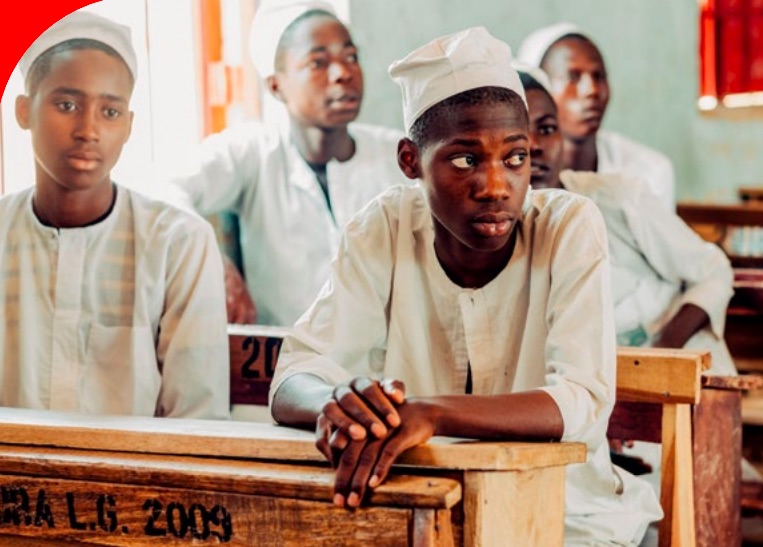FREE FLOW OF INFORMATION
A report from Peace Direct
Almost four years since the historic adoption of the United Nations (UN) Security Council Resolution (SCR) 2250, most signatory Member States are still lagging in supporting youth-led initiatives and generating conducive environments for youth inclusion at the local level.
Despite most governments’ failure to implement this resolution and support youth-led peacebuilding initiatives, young peacebuilders around the world are charting creative and innovative ways to assert their voices, thus contributing to advancing youth inclusion in peacebuilding processes around the world. Drawing on a three-day online consultation organised by Peace Direct and United Network of Young (UNOY) Peacebuilders in April 2019 with local peacebuilders from across the world, this report shares key insights and policy recommendations to enhance youth inclusion in peacebuilding processes in light of young peacebuilders’ strengths and aspirations to transform their respective contexts.

This report forms part of Peace Direct’s Local Voices for Peace (LVP) Report series and seeks to amplify young peacebuilders’ voices and explore the different, innovative ways in which they are advancing youth inclusion in political and peacebuilding processes in their contexts. It underscores the challenges that young peacebuilders are experiencing in the implementation of SCR 2250.
Participants of the online consultation delineated the tensions that exist between their optimistic individual attitudes, behaviours, and aspirations underlying their peacebuilding efforts, and the attitudes and behaviours of policymakers toward youth-led peacebuilding initiatives. Thus, a central question that the report posits for policymakers, governments, peacebuilding organisations, research institutions, and young peacebuilders working to advance the Youth, Peace and Security (YPS) Agenda is: how can we effectively support and engage the growing number of youth peacebuilders around the world? How can we ensure greater support and identify a new approach to engage youth peacebuilders? To advance youth inclusion in peacebuilding processes, it is critical that policymakers and local stakeholders choose to perceive young peacebuilders and youth in general as allies for good rather than threats to contain.
Key insights
The three-day online consultation, convened by Peace Direct and UNOY, sought to explore the innovative ways in which local young peacebuilders are advancing youth inclusion in political and peacebuilding processes in their different contexts. Participants were invited to contribute to a series of online, text-based discussions for three days. Over 140 participants from 56 countries took part. The most noteworthy insights and recommendations from the online consultation are summarised below:
* Participants of the online consultation juxtaposed the optimistic individual attitudes and behaviours of many young people driving peacebuilding efforts with the failure of policy makers to recognise and support the positive potential of youth in peacebuilding processes as agents of conflict transformation. • Most governments have thus far failed to adequately implement SCR 2250 at the local level. Youth peacebuilders face combined challenges of shrinking civic engagement spaces, limited access to individual economic opportunities or organisational funding, and a lack of transparency from governments on the implementation of the YPS Agenda. • It is important that policymakers open political spaces for youth to fully participate in both the formulation of decision-making structures and actual decision-making processes. Open dialogue is key to building trust between youth peacebuilders and policymakers.
(Article continued in right column)
Question related to this article.
(Article continued from left column)
* Despite exclusion from political and policy processes, most young people do not turn to violence as a solution for political change. However, such exclusion can exacerbate the risk of violence and radicalisation in certain contexts. • Existing gender norms can affect which youth groups can access peacebuilding processes. • To advance the inclusion of youth, and other marginalised groups such as women, in peacebuilding processes, it is critical to also recognise and account for the destructive roles these constituencies have played in conflicts — allowing appropriate transitional and restorative justice mechanisms to address past abuses. This is especially crucial in countries with histories of unaddressed past grievances in which youth were perpetrators of violence
Recommendations
Governments, multilateral actors and civil society groups should: • Recognise the force of youth peacebuilders as agents of conflict transformation and peacebuilding. Governments must urgently implement SCR 2250 and foster meaningful youth participation in peacebuilding processes through effective policies and programmes. This involves engaging youth constituencies in defining country strategies and peacebuilding processes that are reflective of their needs and aspirations.
* Support greater funding for youth groups and youth-led initiatives at local levels, for example through supporting youth peacebuilder networks and fostering local youth leadership. This should include flexible funding structures needed to build organisational sustainability at local levels.
* Improve accountability and transparency on action on YPS, such as through improved official and shadow reporting on implementation on the five pillars of SCR 2250 – namely participation, protection, prevention, partnerships, and disengagement and reintegration – as well as on the specific stipulations of SCR 2419 on youth participation in the negotiation and implementation of peace agreements.
* Undertake intersectional analyses to understand and address factors impeding the full recognition of the contributions of young women and other marginalised youth groups. It is important to promote the inclusion of girls and women in peacebuilding processes by challenging negative gender norms.
* Adapt to new ways of participation and new youth leadership models. This paradigm shift involves an awareness of youth-friendly mechanisms and tools such as youth MP quotas, youth advisory councils, dedicated youth programmes, and social media to stimulate their full contribution in social and political matters.
* Continue to build the evidence around young people’s contributions to peacebuilding in diverse conflict contexts.
* Support the establishment of intergenerational councils to discuss challenges related to youth inclusion in peacebuilding. These councils would provide permanent platforms for intergenerational participation in the policymaking process and should be composed of elders, political leaders, policymakers, and youth representatives from all backgrounds—especially those most affected by conflict.
To read the report in full, visit https://www.peacedirect.org/publications/youth-and-peacebuilding/.